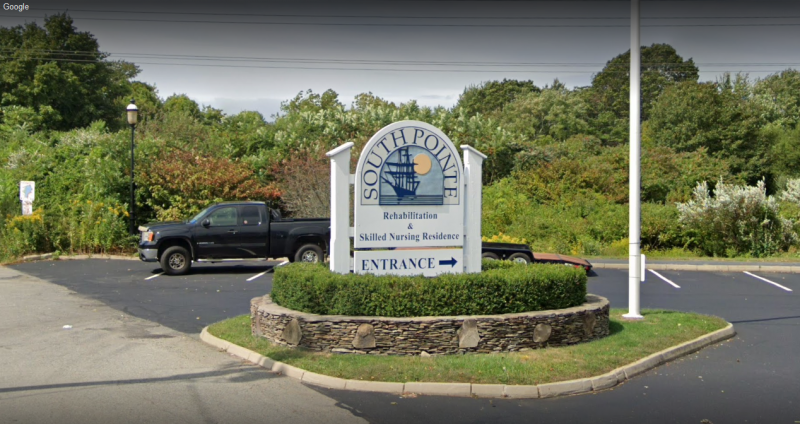Community
Massachusetts to begin allowing visitors to nursing homes with restrictions, guidelines

Massachusetts nursing homes can begin allowing visitors on Wednesday, but with changes.
Elizabeth D. Kelley, MPH, MBA, Director Bureau of Health Care Safety and Quality, has issued a memo to nursing home and rest home administrators concerning an update on rules and visitations.
The memorandum replaces the memorandum issued on March 16, 2020.
The memorandum is as follows:
Limitations on Long-Term Care Visitors:
Long-term care facilities may allow visits with residents to occur, provided that the physical distancing and protection requirements described in detail below are followed. As much as possible, long-term care facilities should continue to use alternative electronic methods for communication between residents and visitors, such as Skype, FaceTime, WhatsApp or Google Duo.
Designated Outdoor Visitation Space:
A long-term care facility may allow in-person visitation in a designated outdoor visitation space, provided that the long-term care facility implements all of the following safety, care, and infection control measures:
• A resident who is suspected or confirmed to be infected with COVID-19 cannot be visited. A resident who has recovered from COVID-19 may be visited.
• Prior to transporting a resident to the designated outdoor visitation space, the long-term care facility must screen the visitor for fever or respiratory symptoms. Any individuals with symptoms of COVID-19 infection (fever equal to or greater than 100.0 F, cough, shortness of breath, sore throat, myalgia, chills or new onset of loss of taste or smell) will not be permitted to visit with a resident.
• Transport of a resident to and from the designated outdoor visitation space must be safe and orderly. At a minimum, safe transport means that the resident cannot be transported through any space designated as COVID-19 care space or space where residents suspected or confirmed to be infected with COVID-19 are present.
• A long-term care facility staff member trained in such patient safety and infection control measures must remain with the resident at all times during the visit.
• Visitors must be limited to no more than two individuals. A visitor must remain at least 6 feet from the resident and attending staff member(s) at all times during the visit.
• Staff and residents must wear a surgical face mask and visitors must wear a face covering or mask for the duration of the visit.
Visits with a resident in a designated outdoor space must be scheduled in advance and are dependent on permissible weather conditions, availability of outdoor space, and sufficient staffing at the facility to meet resident care needs, and the health and well-being of the resident.
A long-term care facility may limit the length of any visit, the days on which visits will be permitted, the hours during a day when visits will be permitted, and the number of times during a day or week a resident may be visited.
Compassionate Care Visitation:
For compassionate care situations, including but not limited to an end-of-life situation, long-term care facilities must limit visitors in the facility to a specific room: either the resident’s room, if the resident has a private room, or another location designated by the facility. Long-term care facilities must require visitors to perform hand hygiene. Decisions about visitation during an end of life situation should be made on a case-by-case basis, which should include careful screening of the visitor (including clergy, bereavement counselors, etc.) for any symptoms of COVID-19. Individuals with symptoms of a respiratory infection (fever, cough, shortness of breath, sore throat, myalgia, chills or new onset of loss of taste or smell) should not be permitted to enter the long-term care facility at any time.
For those who are in end-of-life situations, visitors should be allowed a time limited visit and be given a face mask if they do not have a face covering or mask. For those visitors who are permitted to visit in compassionate care situations, the visitors must be restricted to the resident’s room or other location designated by the facility. They must also be reminded to frequently perform hand hygiene.
Any individual who enters the long-term care facility and develops signs and symptoms of COVID-19 such as fever, cough, shortness of breath, sore throat, myalgia, chills, or new onset loss of smell or taste within 2 days after exiting the long-term care facility or designated outdoor space must immediately notify the long-term care facility of the date they were in the facility, the individuals they were in contact with, and the locations within the facility they visited. Long-term care facilities should immediately screen the individuals who had contact with the visitor for the level of exposure and follow up with the facility’s medical director or resident’s care provider.
Exceptions to Visitor Limitations:
Health care personnel: Long-term care facilities should follow CDC guidelines for the management of health care personnel who may have been exposed to COVID-19 which can be found at https://www.cdc.gov/coronavirus/2019-ncov/hcp/guidance-risk-assesment-hcp.html
The nursing home or rest home must confirm that health care personnel do not have any signs or symptoms of COVID such as a cough, shortness of breath, or sore throat, myalgia, chills, or new onset loss of smell or taste and a fever by taking each healthcare personnel’s temperature upon arrival. The health care worker’s temperature must be below 100.0 oF for him or her to enter the facility and provide care.
Screening and temperature checks also apply to other health care personnel, such as hospice workers, dialysis technicians, nursing students or Emergency Medical Service (EMS) personnel in non-emergency situations that provide care to residents. They should be permitted to come into the facility as long as they meet the CDC guidelines for health care personnel.
In emergency situations, EMS personnel should be permitted to go directly to the resident.
Dining and Group Activities:
All long-term care facilities should continue to suspend communal dining, as well as internal and external group activities.





You must be logged in to post a comment Login